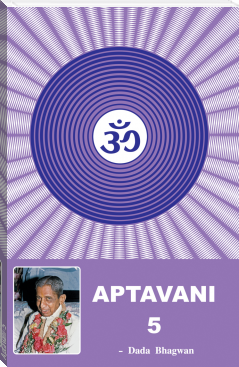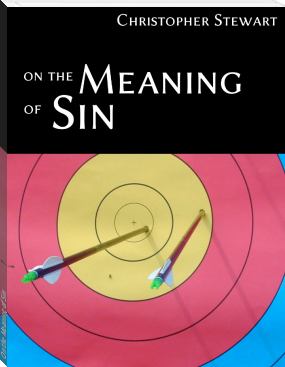Author's e-books - liberation. Page - 1

“Aptavani 1” is the first in a series of spiritual books titled “Aptavani”. In this series, Gnani Purush (embodiment of Self knowledge) Dada Bhagwan addresses age-old unanswered questions of spiritual seekers.
Dadashri offers in-depth answers to questions such as: “Who am I?”, “What is our purpose in life?”, “What is the nature of the journey of souls?”, “Why do bad things happen to good people?”, “What does karma mean?”, “How was the world created?”, “Who is the ‘Doer’ (ego definition)?”
Dadashri also provides spiritual expositions on the topics of: “What is religion?”, “How to find God?”, “What is the difference in religion vs. spirituality?”, “How do you define spirituality?”, “How can I attain knowledge of Self?”, “How can I experience my own pure Soul?”, and “What is liberation?”
Ultimately, Dadashri describes how the knowledge of Self is the final goal of all seeking. Without Self knowledge, one cannot attain ultimate liberation, or moksha.

“Aptavani 5” is the fifth in a series of spiritual books titled “Aptavani”. In this series, Gnani Purush (embodiment of Self knowledge) Dada Bhagwan addresses age-old unanswered questions of spiritual seekers.
Dadashri offers in-depth answers to questions such as: “What is the meaning of karma?”, “How can I master the law of karma?”, “Who am I, and who is the ‘Doer’ (ego definition)?”, and “What is prakruti (non-self complex)?”
Dadashri also provides spiritual explanation on the topics of: “To attain the Self, must one control the five sense organs?”, “How does one define penance?”, and “What would be the definition of repentance?
For those wondering how to become more spiritual, Dadashri explains that the knowledge of Self is the beginning of true spirituality. With such spiritual development, and from understanding the law of karma, one can learn how to interact peacefully in worldly life.

“Aptavani 6” is the sixth in a series of spiritual books titled “Aptavani”. In this series, Gnani Purush (embodiment of Self knowledge) Dada Bhagwan addresses age-old unanswered questions of spiritual seekers.
Dadashri offers in-depth answers to the urgent questions of: “What is the cause of life problems?”, “I experience so much internal struggle while facing problems – teach me how to get inner peace?”, “What is peace of mind, and how can I attain it?”, “I have so many problems in everyday life, my life feels like the very definition of injustice – help me understand how to live?!”
Dadashri explains that, from understanding “Who am I?” and attaining knowledge of Self, a foundation of spirituality opens up within. From this spiritual awakening, a newfound ability to face life problems arises. One begins to experience inner equanimity and peace of mind – regardless of any problems in everyday life.

Growing up is hard work. As we architect our lives, responding to the requirements of our path is demanding enough as it is without having to address additional annoyances that get in the way of our personal development. Still, what if all those irritations were actually the results of our own errors, and as such as many clues inviting us to reform and to regain the itinerary we have selected for ourselves ?
On the Meaning of Sin proposes a different take on the mechanics of sin and rebirth in hell, coming from the perspective of an unorthodox trajectory in the worlds of arts, science, and Oriental philosophy.
In this alternative view, the cosmos provides a course-correction mechanism wherein whenever we miss the mark, we are redirected towards the enjoyment of tranquil progress towards our goals. It supplies a metaphor facilitating the elimination of error, and thus benevolently assists and fosters the achievement of our objectives, allowing us to cultivate a gradually less corrupt mind that gives rise to increasingly satisfying hereafters, in an ever refining continuum.
Any individual can attain liberation, or elimination of error, at any time, and so can society as a whole.
Heaven truly exists, and it is constantly beckoning us towards it.

“Aptavani 1” is the first in a series of spiritual books titled “Aptavani”. In this series, Gnani Purush (embodiment of Self knowledge) Dada Bhagwan addresses age-old unanswered questions of spiritual seekers.
Dadashri offers in-depth answers to questions such as: “Who am I?”, “What is our purpose in life?”, “What is the nature of the journey of souls?”, “Why do bad things happen to good people?”, “What does karma mean?”, “How was the world created?”, “Who is the ‘Doer’ (ego definition)?”
Dadashri also provides spiritual expositions on the topics of: “What is religion?”, “How to find God?”, “What is the difference in religion vs. spirituality?”, “How do you define spirituality?”, “How can I attain knowledge of Self?”, “How can I experience my own pure Soul?”, and “What is liberation?”
Ultimately, Dadashri describes how the knowledge of Self is the final goal of all seeking. Without Self knowledge, one cannot attain ultimate liberation, or moksha.

“Aptavani 5” is the fifth in a series of spiritual books titled “Aptavani”. In this series, Gnani Purush (embodiment of Self knowledge) Dada Bhagwan addresses age-old unanswered questions of spiritual seekers.
Dadashri offers in-depth answers to questions such as: “What is the meaning of karma?”, “How can I master the law of karma?”, “Who am I, and who is the ‘Doer’ (ego definition)?”, and “What is prakruti (non-self complex)?”
Dadashri also provides spiritual explanation on the topics of: “To attain the Self, must one control the five sense organs?”, “How does one define penance?”, and “What would be the definition of repentance?
For those wondering how to become more spiritual, Dadashri explains that the knowledge of Self is the beginning of true spirituality. With such spiritual development, and from understanding the law of karma, one can learn how to interact peacefully in worldly life.

“Aptavani 6” is the sixth in a series of spiritual books titled “Aptavani”. In this series, Gnani Purush (embodiment of Self knowledge) Dada Bhagwan addresses age-old unanswered questions of spiritual seekers.
Dadashri offers in-depth answers to the urgent questions of: “What is the cause of life problems?”, “I experience so much internal struggle while facing problems – teach me how to get inner peace?”, “What is peace of mind, and how can I attain it?”, “I have so many problems in everyday life, my life feels like the very definition of injustice – help me understand how to live?!”
Dadashri explains that, from understanding “Who am I?” and attaining knowledge of Self, a foundation of spirituality opens up within. From this spiritual awakening, a newfound ability to face life problems arises. One begins to experience inner equanimity and peace of mind – regardless of any problems in everyday life.

Growing up is hard work. As we architect our lives, responding to the requirements of our path is demanding enough as it is without having to address additional annoyances that get in the way of our personal development. Still, what if all those irritations were actually the results of our own errors, and as such as many clues inviting us to reform and to regain the itinerary we have selected for ourselves ?
On the Meaning of Sin proposes a different take on the mechanics of sin and rebirth in hell, coming from the perspective of an unorthodox trajectory in the worlds of arts, science, and Oriental philosophy.
In this alternative view, the cosmos provides a course-correction mechanism wherein whenever we miss the mark, we are redirected towards the enjoyment of tranquil progress towards our goals. It supplies a metaphor facilitating the elimination of error, and thus benevolently assists and fosters the achievement of our objectives, allowing us to cultivate a gradually less corrupt mind that gives rise to increasingly satisfying hereafters, in an ever refining continuum.
Any individual can attain liberation, or elimination of error, at any time, and so can society as a whole.
Heaven truly exists, and it is constantly beckoning us towards it.


